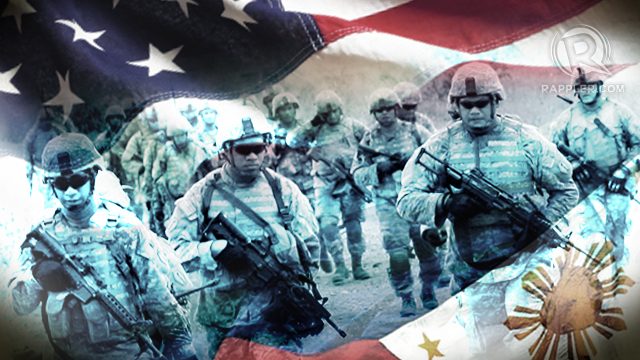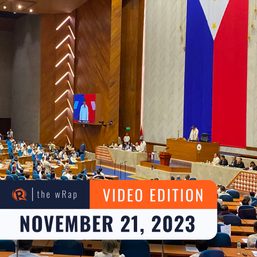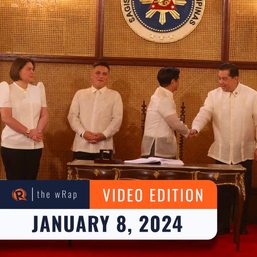SUMMARY
This is AI generated summarization, which may have errors. For context, always refer to the full article.

On 6 February 2015, the White House unveiled its new National Security Strategy (NSS). The document reaffirms the value of collective action, particularly in confronting challenges posed by aggression, terrorism and diseases. Capitalizing on the unique capabilities of the United States to mobilize and lead the international community, the new NSS argues that strong and sustained American leadership is essential to a rules-based international order that promotes global security and prosperity as well as the dignity and human rights of all peoples.
The 2015 NSS is President Obama’s most comprehensive document outlining the principles and priorities of how America will continue to lead the world towards greater peace and new prosperity. It calls for strategic patience and persistence given the reality that the country does not have infinite resources. It reaffirms that hard choices will be made among many competing priorities. It warns against over-reach as many of the security problems do not have quick and easy fixes. Recognizing that a smart national strategy does not solely rely on military power, Pres. Obama vows to work with Congress to end sequestration.
The 2015 NSS is a manifestation of the renewed determination of Pres. Obama to push his agenda within the next eighteen months. Far from being risk-averse, Pres. Obama showed steady resolve in pushing for bold initiatives for the next fiscal year. In his recent State of the Union (SOTU) Address, he cautioned that any bill that tries to slow down businesses or put the economy at risk with government shutdowns or fiscal showdowns, take away health insurance, unravel the new rules of Wall Street, or reopen immigration debates will be vetoed. He appealed that better politics where politicians from both sides appeal to each other’s basic decency be practiced – to debate without demonizing, talk about issues, values, principles and facts – rather than trivial gaffes and fake controversies.
Spectators have noted that the ambivalence that once engulfed him is starting to clear away. In response to criticism that the administration failed to quickly respond to violent extremism and evolving terrorist threat, as well as aggression by Russia, Pres. Obama emphasized the administration’s intent to lead in partnership with allies and friends towards a safer and peaceful world. He highlighted the use of a smarter kind of American leadership, a combination of military power and diplomacy. What others regard as indecisiveness, Pres. Obama explained as calculated choices to avoid getting drawn into unnecessary conflicts and war. Coalition-building and partnerships, not use of force, were touted as better strategies in addressing threats of terrorism and aggression.
Time, however, is not on the President’s side. The results of the 2014 midterm elections further weakened the President’s congressional support. The Republican Congress and Pres. Obama are therefore set for confrontation due to disagreements on immigration, new sanctions to Iran, and the Cuban policy. Whether Pres. Obama will continue to be reinvigorated or stifled by a Republican-controlled Congress opposed to his propositions is something to await in the coming months. Meanwhile, strife is also seen within the Democrats’ side. Disagreements between a ranking Democrat on the Senate Foreign Relations Committee and Pres. Obama surfaced these past weeks.
The United States of America is at a crossroads. The nation is hounded by multifaceted challenges ranging from domestic pressure brought about the fragility of longstanding national security consensus on economic reforms, education and health care, to threats of terrorism, cyber-security and climate change. Despite renewed economic progress marked by lower unemployment, shrinking deficits and booming energy production, the destabilizing effect of political gridlock looms over the country. Deep partisan differences between the US leaders and their constituents affect the trajectory of US domestic and foreign policy.
The implication of such domestic problems to American foreign policy and leadership in the world stage was explained by Zbigniew Brzezinski, former national security adviser to President Jimmy Carter. He noted that the American strength abroad depends increasingly on the ability of the country to confront problems at home. Thus, now, more than ever, American leaders are faced with monumental choices of how to balance domestic priorities with global leadership responsibilities. In the foreseeable future, America’s global standing will depend on whether it can significantly alleviate its domestic conditions and effectively shape new geopolitical equilibrium in the twenty-first century.
Implications for the Philippines
It is within the Philippines’ interest that the United States continue to play a leadership role in the world stage. The United States remains the Philippines’ sole ally. The two countries share a unique bond forged by shared history, common values, a commitment to freedom and democracy and vigorous military ties. Pres. Obama’s state visit to the Philippines on 28-29 April 2014 reaffirmed the enduring alliance between the two countries.
There are approximately 4 million Filipinos in the United States, making the Filipinos the second largest Asian group in the US. Following the devastation caused by Typhoon Haiyan/ Yolanda in Central Visayas, the Philippine Foreign Affairs Department requested for Temporary Protected Status (TPS) to allow more than 200,000 undocumented Filipinos to stay and work legally in the US for at least 18 months. There are also hundreds of thousands of Americans residing in the Philippines.
The Philippines and the United States cooperate extensively in fighting corruption, in improving governance on humanitarian assistance and disaster relief and recovery, and in combatting the proliferation of weapons of mass destruction.
It is thus with certainty that any domestic flux in the United States would directly affect the Philippines. Any alteration in its domestic and foreign policy would have repercussions on the dynamics of our bilateral relationship particularly in issues like immigration, trade, climate change and terrorism. – Rappler.com
Karla Mae G. Pabeliña is a Foreign Affairs Research Specialist with the Center for International Relations and Strategic Studies of the Foreign Service Institute. Ms. Pabeliña can be reached at kgpabelina@fsi.gov.ph.
This was first published in the CIRSS Commentaries, a regular short publication of the Center for International Relations and Strategic Studies (CIRSS) of the Foreign Service Institute (FSI) focusing on the latest regional and global developments and issues. FSI is on Facebook and Twitter.
The views expressed in this publication are of the authors alone and do not reflect the official position of the Foreign Service Institute, the Department of Foreign Affairs and the Government of the Philippines.
Add a comment
How does this make you feel?















There are no comments yet. Add your comment to start the conversation.